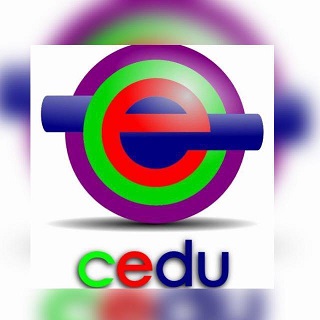DLE AND SOCIAL MEDIAS: HOW TO RECONCILE THEM
Keywords:
Distance learning education, Social networks, Digital educationAbstract
This work aims to present data between 2012 and 2018 on the progress of the DLE, in relation to its network of users, divided here by age group, being a classificatory research, and the relevance of social medias and their influence on the advancement of DLE in interaction among users, aiming to obtain and analyze data from the inclusion of these users in DLE and the positive participation of social medias in this process of reception, dissemination and use as a digital inclusion tool. The data collected comes from statistical research of sources via the web and public educational content (DLE Census). We seek in this work to acquire concrete data to understand and classify this reconciliation of social medias with DLE, with a view to advancing in this area. For this, we brought as a theoretical basis, renowned authors in the area, such as Leffa and Freire (2013) and Shirky (2011). The methodology was based on: (i) data collection regarding the progress of DLE and the use of social medias in the country; (ii) data analysis and (iii) classification of users according to age, school level and profile as a user of social medias. As final results, we see that the age group of the largest users in DLE is the same of the largest users connected in social medias, thus associating the division of connected time between both, arguing that social networks have added to DLE, being a facilitator and an intermediary to the education.
Downloads
References
CENSO EAD.BR: Relatório Analítico de Aprendizagem a Distância no Brasil 2012 = Censo EAD.BR: Analytic Report of Distance Learning in Brazil/ [traduzido por Opportunity Translations]. Edição bilíngue português/inglês ABED – Associação Brasileira de Educação a Distância. Curitiba: Ibpex, 2013.
CENSO EAD.BR: Relatório analítico da aprendizagem a distância no Brasil 2018 = Censo EAD.BR: Analytic Report of Distance Learning in Brazil 2018 [livro eletrônico]/[organização] ABED – Associação Brasileira de Educação a Distância. ROSA, C. (tradutora). Curitiba: InterSaberes, 2019.
DIANA, J. Redes sociais. Toda matéria artigos escolares: Informática. Artigo digital disponível em: <https://www.todamateria.com.br/redes-sociais/>, 2019. Acesso em 18 ago., 2019.
GALVÃO, B. Rede social x vida real. Charges Bruno Blogspot. Disponível em: <https://modicesdeclara.blogspot.com/2015/11/rede-social-x-vida-real_8.html>. 2015. Acesso em 01 out., 2019.
HOOTSUITE. We are social Hootsuite report. Perfil de usuários das redes sociais Brazil. Jan. 2020. In: Blog Seeds Design Team: Quais redes sociais o seu público habita? Abril de 2020. Disponível em: <https://seedsdesign.com.br/quais-redes-sociais-o-seu-publico-habita/>. Acesso em 28 abr., 2020.
LEFFA, V.; FREIRE, M. Educação sem distância. In: MAYRINK, M. F.; ALBUQUERQUE-COSTA, H. (Org.). Ensino e aprendizagem de língua em ambientes virtuais. São Paulo: Humanitas, 2013, p. 13-38.
PLANWEB. Agência digital. Quanto tempo você gasta nas redes sociais? Planweb Interativa, 2017. Disponível em: <http://planweb.com.br/quanto-tempo-voce-gasta-nas-redes-sociais/>. Acesso em 02 set., 2019.
RIBAS, C. C. As redes sociais como ferramenta em EAD: um estudo sobre a utilização do Facebook. In: Ensaios pedagógicos, Revista Eletrônica do Curso de Pedagogia das Faculdades OPET, p. 11-18, 2015 Disponível em: <http://www.opet.com.br/faculdade/revista-pedagogia/pdf/n9/ARTIGO2-CINTIA.pdf.> Acesso em 21 set., 2019
ROCK CONTENT. Inteligência corporativa. Panorama das empresas e dos usuários nas redes sociais. Artigo digital publicado em Social Media Trends 2019. Inteligência Corporativa, 2019. Disponível em: <https://inteligencia.rockcontent.com/social-media-trends-2019-panorama-das-empresas-e-dos-usuarios-nas-redes-sociais/.> Acesso em 15 out., 2019.
SHIRKY, C. A cultura da participação: criatividade e generosidade no mundo conectado. Rio de Janeiro: Zahar, 2011.
Published
How to Cite
Issue
Section
License
Copyright
The submission of originals to Cenas Educacionais (Educational Scenes - CEDU) implies the transfer, by the authors, of the publication rights. The copyright for the manuscripts published in this journal is the author(s), with CEDU rights over the first publication. Authors(s) may only use the same results in other publications by explicitly indicating CEDU as the means of the original publication.
Creative Commons License
Except where otherwise specified, the terms of a Creative Commons Attribution-ShareAlike 4.0 International License license apply to the material published in this journal, which allows unrestricted use, distribution and reproduction in any medium provided the original publication is correctly cited.






 This work is licensed with a License
This work is licensed with a License 